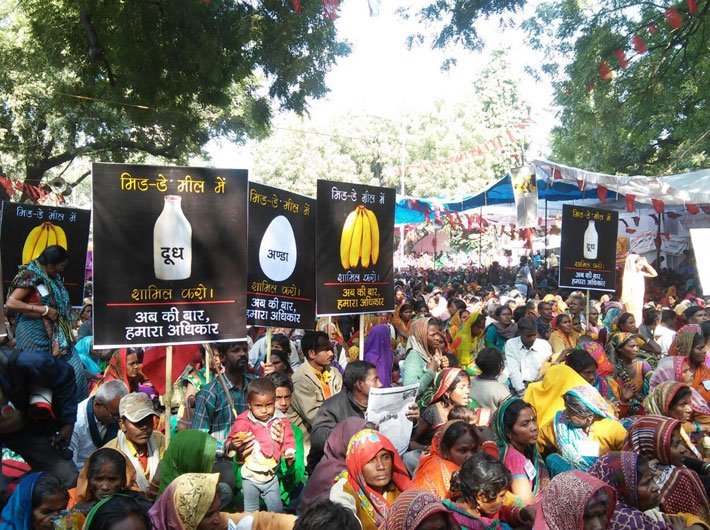Many say they are somewhat or very likely to take political action to address government corruption and poor quality schools.
A large majority of Indians report having voted in an election, either in the past year or in the more distant past. Far fewer Indians have engaged in other forms of political participation and only about one in ten have engaged in any of the online forms of political participation tested, said a Pew Research Center survey.
Indian men are more likely than women to have attended a campaign event (48% men vs 25% women), participated in a volunteer organisation (25% vs 19%) and have taken part in an organised protest (31% vs 20%), said the survey report authored by Richard Wike, Janell Fetterolf and Bridget Parker.
It said: “Government corruption and poor quality schools are top issues for political action in India.”
At least seven in ten Indians say they are likely to take political action, such as contact an elected official or participate in a demonstration, over a range of key domestic issues. The largest percentages say they are somewhat or very likely to take political action to address government corruption and poor quality schools (both 77%). Slightly smaller numbers say they would take political action in response to poor health care, poverty or police misconduct (each 73%). And seven in ten Indians say they are likely to act to address discrimination against vulnerable or disadvantaged groups (70%).
Notably, the reported likelihood of taking political action is similarly high for men and women as well as for people of all ages, with one exception. Those ages 18 to 34 (75%) are more likely than people 50 and older (66%) to take political action in response to police misconduct.
Indians were positive on their government and their power to influence it.
“Consistent with Indians’ generally positive views of their country and leadership, they believe that ordinary citizens can influence, and benefit from, their government. Roughly two-thirds (68%) believe that government is run for the benefit of all people in their country. Only a quarter believe that the government is run for the benefit of a few groups. In addition, a majority (55%) of Indians say that ordinary citizens can do a lot to influence their government if they are willing to make the effort, while only about one-in-five (19%) say there is not much ordinary citizens can do to have an impact,” said the report.
It went on to say that views on citizens’ power to affect government are linked to the likelihood that people will take action when they are concerned with political issues. In India, those who think that ordinary people are able to influence the government are more likely to say they would be very or somewhat likely to take political action, such as contact elected officials or participate in demonstrations, on a variety of political issues.
“Views about the government vary by political party in India. Supporters of the Bharatiya Janata Party (BJP), the party currently in power, are more likely than supporters of the opposition Indian National Congress party to believe that the government is run for the benefit of all people. Still, even among Congress supporters, roughly six-in-ten (62%) think that the government is run for the benefit of all.”
As a new nine-country Pew Research Center survey on the strengths and limitations of civic engagement illustrates, there is a common perception that government is run for the benefit of the few, rather than the many in both emerging democracies and more mature democracies that have faced economic challenges in recent years. In eight of nine nations surveyed, more than half say government is run for the benefit of only a few groups in society, not for all people.
It said that this sceptical outlook on government does not mean people have given up on democracy or the ability of average citizens to have an impact on how the country is run. Roughly half or more in eight nations – Kenya, Nigeria, South Africa, the US, India, Greece, Italy and Poland – say ordinary citizens can have a lot of influence on government. Hungary, where 61% say there is little citizens can do, is the lone nation where pessimism clearly outweighs optimism on this front.
Many people in these nine nations say they could potentially be motivated to become politically engaged on a variety of issues, especially poor healthcare, poverty and poor quality schools. When asked what types of issues could get them to take political action, such as contacting an elected official or taking part in a protest, poor health care is the top choice among the six issues tested in six of eight countries. Healthcare, poverty and education constitute the top three motivators in all nations except India and Poland.
